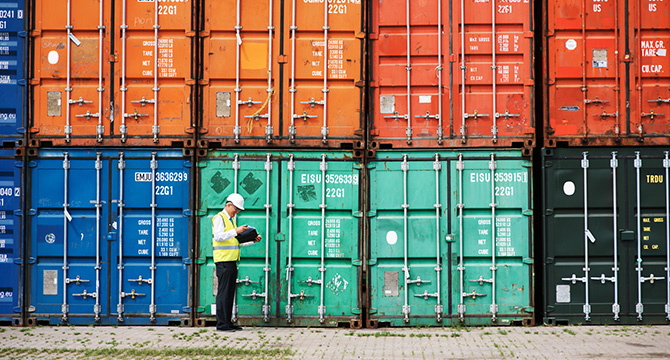International Trade, Enforcement & Compliance Recent Developments Update (December 13, 2023)
Welcome to Foley’s International Trade, Enforcement & Compliance Recent Developments Update

Customs keeps appearing in these “Recent Developments,” doesn’t it? Some companies that apparently haven’t been following our updates have suffered severe consequences for evading antidumping and countervailing duties, using incorrect classifications, double-invoicing schemes to underpay lawfully due tariffs, and violating forced labor/UFLPA requirements. We’ll say it again: Does your company have an up-to-date Customs Manual, Classification Index, and faithfully followed post-entry procedures to confirm the accuracy of the 7501 Entry Summary information provided to Customs? And has it mapped out its supply chain and taken steps to ensure that it is acting in accordance with all the new supply chain integrity requirements that are enforced by Customs?
Customs
Customs recently determined that various importers were evading antidumping duty and countervailing duty orders through such measures as shipping through third countries, resulting in substantial penalties and the imposition of special importation rules on the importers. Does your company maintain rules to accurately determine the country of origin and potential coverage of AD/CVD orders consistent with Customs rules, including for products shipped by third parties?
Customs Enforcement/False Claims Act
A large importer paid a $1 million fine after admitting it submitted documents as being lower-duty footwear when it knew the tariff classification of a higher-tariff classification was more appropriate. The matter was brought to the attention of the U.S. government after the filing of a whistleblower complaint as part of a False Claims Act (FCA) action, which is an increasingly common use of the FCA. U.S. v. Samsung C&T America, case number 16-cv-7216, U.S. District Court for the Southern District of New York. Does your organization maintain an up-to-date Customs Classification Index to ensure the accurate classification of goods imported into the United States?
Customs Double-Invoicing
The Department of Justice announced the imposition of a $500,000 penalty on a company that engaged in a double-invoicing scheme to report an artificially low entered value to Customs. Does your company regularly compare its import data reported to Customs using the ACE portal, with the underlying transactional documents to ensure accuracy in the entered value reported to Customs?
Forced Labor/Customs
U.S. law contains a special trade provision that specifically targets the use of forced labor by North Korea. The Countering America’s Adversaries Through Sanctions Act (CAATSA) prohibits the entry of goods mined, produced, or manufactured wholly or in part by North Korean nationals or North Korean citizens anywhere in the world unless clear and convincing evidence is provided that such goods were not made with convict labor, forced labor, or indentured labor under penal sanctions. Does your supply chain integrity compliance policy, due diligence, and legal provisions extend to sub-suppliers who might be directly or indirectly sourcing from North Korea?
UFLPA/Customs
The Department of Homeland Security recently announced the addition of three more companies to the Uyghur Forced Labor Prevention Act (UFLPA) Entity List “as part of its commitment to eliminating the use of forced labor practices in the U.S. supply chain and promoting accountability for the ongoing genocide and crimes against humanity against Uyghurs and other religious and ethnic minority groups in the Xinjiang Uyghur Autonomous Region (Xinjiang).” In addition, the UFLPA Customs UFLPA Dashboard is now showing that Customs has detained over $2 billion worth of entries in the 18 months since the UFLPA has become effective. Has your organization fully mapped out its supply chain and conducted risk-based due diligence and reviews of your supply chain to minimize the chances of detentions, particularly if your organization imports from China and other countries at elevated risk of forced labor detentions?
Export Controls and Economic Sanctions
The Departments of Justice, Commerce, and Treasury have released red flags guidance to help companies detect third-party shipments intended for Russia, in violation of U.S. law. Does your organization promulgate tailored red flags to relevant personnel, to help employees identify red flags that indicate potential attempts to circumvent U.S export control or economic sanctions requirements?
If you would like to be added to our email list to receive further updates and our biweekly articles on “What Every Multinational Should Know . . .”, then click here to register.
